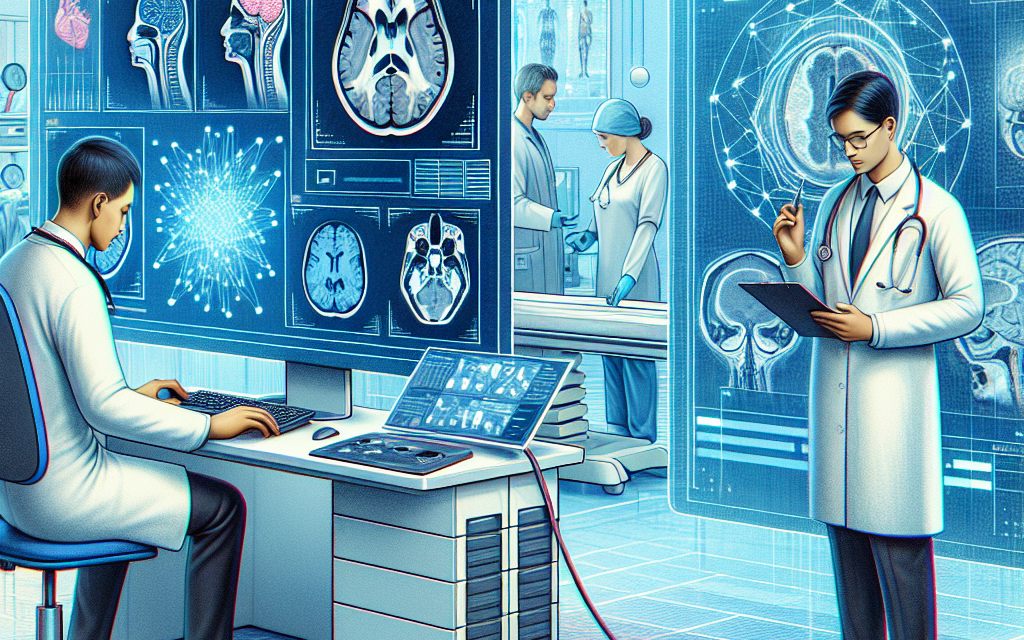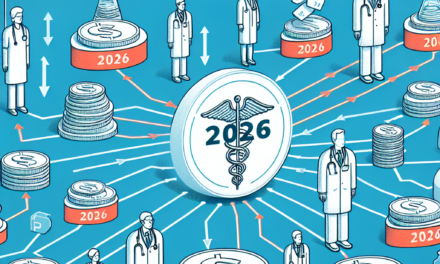Unlocking Actionable and Safe AI in Healthcare: A Success Story
The integration of Artificial Intelligence (AI) in healthcare has been a transformative journey, marked by both challenges and triumphs. As the healthcare industry grapples with the complexities of patient care, data management, and operational efficiency, AI emerges as a beacon of hope. This article delves into the success story of actionable and safe AI in healthcare, exploring its applications, benefits, challenges, and future prospects. We will examine five key subtopics that highlight the multifaceted role of AI in revolutionizing healthcare delivery.
1. The Evolution of AI in Healthcare
The journey of AI in healthcare began decades ago, but it has gained significant momentum in recent years. Initially, AI applications were limited to basic data analysis and administrative tasks. However, advancements in machine learning, natural language processing, and data analytics have paved the way for more sophisticated applications.
One of the earliest uses of AI in healthcare was in diagnostic imaging. Algorithms were developed to analyze X-rays and MRIs, assisting radiologists in identifying anomalies. Over time, these systems have evolved to become more accurate and reliable. For instance, a study published in the journal *Nature* demonstrated that an AI system could outperform human radiologists in detecting breast cancer in mammograms, achieving an accuracy rate of 94.6% compared to 88.0% for human experts.
Today, AI is being utilized in various domains within healthcare, including:
- Predictive Analytics: AI algorithms analyze patient data to predict disease outbreaks and patient deterioration.
- Personalized Medicine: AI helps tailor treatment plans based on individual patient profiles, improving outcomes.
- Robotic Surgery: AI-powered robots assist surgeons in performing complex procedures with precision.
- Virtual Health Assistants: Chatbots and virtual assistants provide patients with information and support, enhancing patient engagement.
The evolution of AI in healthcare is not just about technology; it also involves a cultural shift within healthcare organizations. Providers are increasingly recognizing the value of data-driven decision-making and the importance of integrating AI into their workflows. This shift is essential for unlocking the full potential of AI in improving patient care and operational efficiency.
2. Case Studies: Successful Implementations of AI in Healthcare
Numerous healthcare organizations have successfully implemented AI solutions, demonstrating the technology’s potential to enhance patient care and streamline operations. Here are a few notable case studies:
2.1. IBM Watson Health
IBM Watson Health has been at the forefront of AI in healthcare, leveraging its cognitive computing capabilities to assist in clinical decision-making. One of its most significant achievements was its collaboration with Memorial Sloan Kettering Cancer Center (MSKCC) to develop an AI system that analyzes cancer patients’ medical records and provides treatment recommendations.
In a clinical trial, Watson was able to recommend treatment options that aligned with expert oncologists’ decisions 96% of the time. This success underscores the potential of AI to augment human expertise, particularly in complex fields like oncology where treatment options are vast and evolving.
2.2. Google DeepMind and Moorfields Eye Hospital
Google’s DeepMind partnered with Moorfields Eye Hospital in London to develop an AI system capable of diagnosing eye diseases from retinal scans. The AI model was trained on a dataset of over 14,000 eye scans and was able to identify conditions such as diabetic retinopathy and age-related macular degeneration with an accuracy of 94%.
This collaboration not only showcased the potential of AI in improving diagnostic accuracy but also highlighted the importance of collaboration between tech companies and healthcare providers. The successful implementation of this AI system has led to faster diagnosis and treatment for patients, ultimately improving patient outcomes.
2.3. Aidoc: AI in Radiology
Aidoc is a startup that has developed an AI platform designed to assist radiologists in identifying critical conditions in medical imaging. The platform analyzes CT scans in real-time, flagging potential issues such as intracranial hemorrhages and pulmonary embolisms.
In a study conducted at a major hospital, Aidoc’s AI system was able to reduce the time taken to diagnose life-threatening conditions by 50%. This rapid identification allows for quicker intervention, which is crucial in emergency situations. The success of Aidoc demonstrates how AI can enhance the capabilities of healthcare professionals, ultimately leading to better patient care.
3. Benefits of AI in Healthcare
The integration of AI in healthcare offers numerous benefits that can significantly enhance patient care and operational efficiency. Here are some of the key advantages:
3.1. Improved Diagnostic Accuracy
AI algorithms can analyze vast amounts of data quickly and accurately, leading to improved diagnostic accuracy. By identifying patterns and anomalies that may be missed by human eyes, AI can assist healthcare professionals in making more informed decisions.
3.2. Enhanced Patient Engagement
AI-powered virtual health assistants and chatbots can provide patients with immediate access to information and support. This enhances patient engagement and empowers individuals to take an active role in their healthcare journey.
3.3. Operational Efficiency
AI can streamline administrative tasks, such as scheduling appointments and managing patient records. By automating these processes, healthcare organizations can reduce costs and allocate resources more effectively.
3.4. Personalized Treatment Plans
AI can analyze genetic, environmental, and lifestyle factors to create personalized treatment plans for patients. This approach not only improves outcomes but also enhances patient satisfaction.
3.5. Predictive Analytics for Preventive Care
AI can analyze historical data to identify trends and predict potential health issues before they arise. This proactive approach allows healthcare providers to implement preventive measures, ultimately improving population health.
4. Challenges and Ethical Considerations
Despite the numerous benefits of AI in healthcare, several challenges and ethical considerations must be addressed to ensure its safe and effective implementation.
4.1. Data Privacy and Security
The use of AI in healthcare often involves the analysis of sensitive patient data. Ensuring data privacy and security is paramount to maintaining patient trust. Healthcare organizations must implement robust cybersecurity measures and comply with regulations such as HIPAA to protect patient information.
4.2. Algorithmic Bias
AI systems are only as good as the data they are trained on. If the training data is biased or unrepresentative, the AI may produce skewed results. This can lead to disparities in care and outcomes for different patient populations. It is essential to ensure that AI algorithms are trained on diverse datasets to mitigate this risk.
4.3. Regulatory Challenges
The rapid pace of AI development poses challenges for regulatory bodies tasked with ensuring the safety and efficacy of these technologies. Striking a balance between innovation and regulation is crucial to fostering a safe environment for AI in healthcare.
4.4. Integration into Clinical Workflows
Integrating AI into existing clinical workflows can be challenging. Healthcare professionals may be resistant to adopting new technologies, particularly if they perceive them as a threat to their expertise. Effective training and change management strategies are essential to facilitate successful integration.
4.5. Ethical Decision-Making
As AI systems become more autonomous, ethical considerations surrounding decision-making arise. Questions about accountability, transparency, and the role of human oversight must be addressed to ensure that AI is used responsibly in healthcare.
5. The Future of AI in Healthcare
The future of AI in healthcare is promising, with ongoing advancements poised to further enhance patient care and operational efficiency. Here are some key trends and predictions for the future:
5.1. Increased Collaboration Between Tech and Healthcare
As the benefits of AI become more apparent, we can expect increased collaboration between technology companies and healthcare providers. This partnership will drive innovation and lead to the development of more effective AI solutions tailored to the needs of healthcare professionals and patients.
5.2. Expansion of Telemedicine
The COVID-19 pandemic accelerated the adoption of telemedicine, and AI will play a crucial role in enhancing virtual care. AI-powered tools can assist healthcare providers in diagnosing and treating patients remotely, improving access to care for underserved populations.
5.3. Advancements in Personalized Medicine
As genomic data becomes more accessible, AI will enable even more personalized treatment plans. By analyzing genetic information alongside clinical data, AI can help identify the most effective therapies for individual patients, leading to better outcomes.
5.4. Focus on Preventive Care
The shift towards preventive care will be further supported by AI’s predictive analytics capabilities. By identifying at-risk populations and implementing targeted interventions, healthcare providers can improve overall health outcomes and reduce healthcare costs.
5.5. Ethical Frameworks for AI Implementation
As AI continues to evolve, the development of ethical frameworks will be essential to guide its implementation in healthcare. These frameworks will address issues such as data privacy, algorithmic bias, and accountability, ensuring that AI is used responsibly and equitably.
Conclusion
The integration of AI in healthcare represents a significant leap forward in improving patient care and operational efficiency. Through successful case studies and the exploration of its benefits, challenges, and future prospects, it is clear that AI has the potential to revolutionize the healthcare landscape.
As we move forward, it is essential to address the challenges and ethical considerations associated with AI implementation. By fostering collaboration between technology companies and healthcare providers, prioritizing data privacy, and developing ethical frameworks, we can unlock the full potential of actionable and safe AI in healthcare.
In summary, the success story of AI in healthcare is just beginning. With continued innovation and a commitment to ethical practices, we can look forward to a future where AI enhances the quality of care, improves patient outcomes, and transforms the healthcare experience for all.





